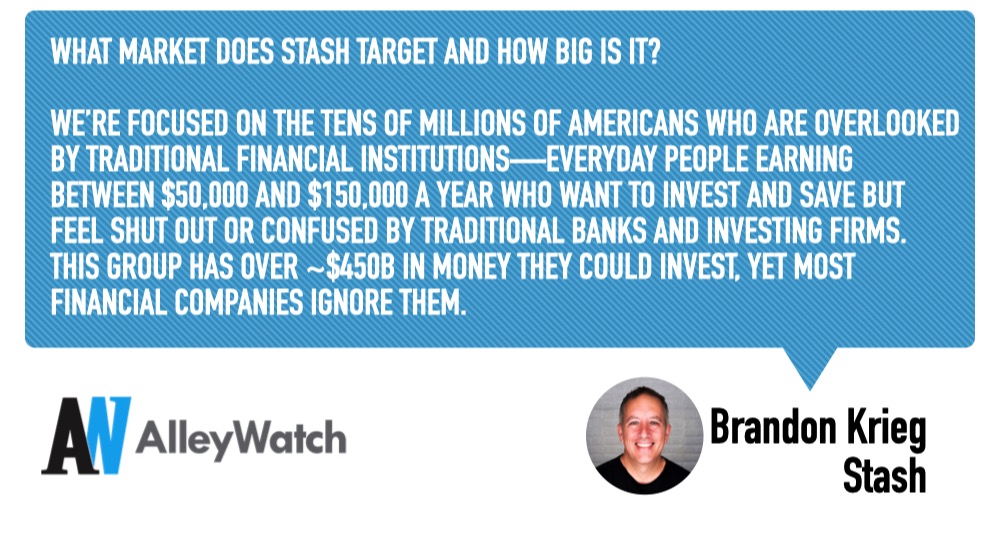On the Joe Rogan Experience, and in a recent discussion with James Lindsay, Jordan Peterson warned of “dark tetrad” psychopaths on social media–individuals with Machiavellian traits who opportunistically adopt ideas and play power games.
Peterson implied these types are emerging on the non-interventionist right, cloaking their real “antisemitic” intentions with false conservative rhetoric. “They use language only as a means to manipulate towards instrumental ends,” Peterson said. They “mimic competence,” but cannot get along with it for long and must “find another host,” because “they don’t create, they destroy.”
But, a stronger case can be made that the real Machiavellian “dark tetrad” types in American politics are the neoconservatives.
Irving Kristol, the “godfather of neoconservatism,” was a radical, anti-Stalinist Trotskyite early in his life and later became a Republican, supporting Cold War interventionism and a “conservative welfare state” modeled on Otto von Bismarck’s social reforms. He was heavily influenced by Leo Strauss, who could be called the “intellectual godfather of neoconservatism.”
Kristol accepted Strauss’s theory that ancient philosophers concealed esoteric meanings in their writings that could only be understood by a select philosophical elite while offering simpler messages to the masses.
Summarizing his contribution, Kristol said that Strauss did not accept the “Enlightenment dogma that `the truth will make men free’” since “there was an inherent conflict between philosophic truth and political order.” Ultimately agreeing with him, Kristol wrote, “[T]he notion that there should be one set of truths available to everyone is a modern democratic fallacy. It doesn’t work.”
Strauss also wrote about Niccolò Machiavelli, admiring the “intrepidity of his thought, the grandeur of his vision, and the graceful subtlety of his speech.” Though he rejected Machiavelli’s amoralism, Strauss valued his realism. He thought Machiavelli’s rejection of the classical philosophers and their ideals and principles birthed modern philosophy. Machiavelli was a pragmatist who focused on “how men live” rather than “how they ought to live.”
Strauss believed democracies needed strong governments and elites to face hostile forces. Paul Wolfowitz, the Deputy Secretary of Defense during the Iraq war, and Abram Shulsky, who in 2003 served as Director of the Office of Special Plans (created to find evidence of Defense Secretary Donald Rumsfeld and Wolfowitz’s claim that Saddam Hussein had weapons of mass destruction), studied under Strauss at the University of Chicago.
Despite claims that Strauss would have rejected neoconservatism, Shulsky, in “Leo Strauss and the World of Intelligence,” cited him as a key influence. He explained that Strauss’s esotericism “suggests that deception is the norm in political life, and the hope . . . of establishing a politics that can dispense with it is the exception.” He praised Strauss for his “success in looking below the surface and reading between the lines.”
Critics argued that Strauss believed that the “person who whispers in the ear of the King is more important than the King” and that “philosophers need to tell noble lies not only to the people at large but also to powerful politicians.” In The Prince, Machiavelli suggests rulers should appear virtuous but act pragmatically and “know how to do wrong.”
Neoconservatives arguably employed “noble lies,” like claims that Saddam Hussein had weapons of mass destruction, to mask strategic aims, like regime change. Pivotal neoconservatives Richard Perle and Norman Podhoretz exemplified these Machiavellian and Straussian tactics. Perle, one of the architects of the Iraq War and co-founder of the Project for the New American Century (PNAC), advocated regime change, claiming that Saddam possessed WMDs. Podhoretz, editor of Commentary Magazine, also shifted from the left to neoconservatism, and said that there was “no doubt” Saddam was “on the precipice of nuclear power” in 2002. They both crafted public narratives while pursuing elite-driven agendas, evidenced by PNAC’s “A Clean Break” memo, written for Benjamin Netanyahu, which revealed the private intentions behind regime change in Iraq and Syria.
Regardless of the Straussian roots, we are inevitably led to the question of whether their policies are actually conservative or whether the neocons simply “found another host.” Perhaps the Straussian roots of neoconservatism are a baseless “conspiracy theory.” Still, we should ask if American interventions in Iraq, Afghanistan, Syria, Libya, and Iran are conservative. Do these policies align with “Mr. Republican” Robert Taft and the Old Right’s non-interventionist stance? Or is it possible that neoconservatives opportunistically cloaked themselves in conservatism to advance an incompetent but highly destructive foreign policy?
Initially aligned with progressive Democrats—Wilson, FDR, Truman, and LBJ—who championed a firmly interventionist foreign policy, the neoconservatives later found themselves at odds with Democrats due to rising anti-war sentiments during the Vietnam War. They began to align themselves with a faction of Republicans. In “The Emergence of Two Republican Parties,” Irving Kristol derided the Old Right’s conservatism as overly concerned with fiscal restraint and opposition to the New Deal. He urged “Post-New Deal Republicans” to embrace “energetic leadership” modeled after Theodore Roosevelt, America’s first progressive president, who pioneered an interventionist foreign policy.
This shift was not unique to Kristol. James Burnham, another ex-Trotskyite, similarly shaped conservatism’s interventionist turn as a founding editor of National Review. Although much can be gleaned from his work, Burnham called for America to wage a “Third World War” against communism and criticized libertarian Murray Rothbard for being an “isolationist.” He praised FDR as “the chief War-Monger” who pulled the U.S. out of the Great Depression.
Burnham’s The Machiavellians championed elite theory and Machiavelli’s realist method, viewing politics as a science of power, divorced from the “other-worldly” and “rotten ethics” of political philosophers and moralists, like Rothbard, who believed in natural law. Instead, Burnham believed liberty could emerge from a rotating elite—but because of his rejection of moralism, his conception of liberty was quite vague, allowing for it to be sacrificed on the altar of the Cold War by the American right.
In his essay “The Party and the Deep Blue Sea,” William F. Buckley, the founder of the National Review (who said Burnham was “the number one intellectual influence on National Review”), wrote about the Republican Platform, beginning with an appeal to libertarians Albert Jay Nock, Herbert Spencer, and H.L. Mencken. But he ends the essay by revealing the truth: the interventionist right dresses in libertarian anti-statism but is statist, Machiavellian, and opportunistic in its militarism.
Because he prioritized victory in the Cold War, Buckley argued for “extensive and productive tax laws that are needed to support a vigorous anti-Communist foreign policy.” To defeat the Soviets, Buckley said, “[W]e have got to accept Big Government for the duration — for neither an offensive nor a defensive war can be waged … except through the instrumentality of a totalitarian bureaucracy within our shores.” Therefore, he concludes, we conservatives and libertarians must put aside our principles and support “large armies and air forces, atomic energy, central intelligence, war production boards and the attendant centralization of power in Washington — even with Truman at the reins of it all.”
Although he later diverged from neoconservative foreign policy during the Iraq War and was a conservative his entire life, Buckley’s willingness to accept Big Government for anti-communism reflected the right’s Machiavellian and neoconservative shift due to the influence of figures like Burnham.
Thanks to that ideological shift, neoconservatives got away with masking their interventionist agenda in conservative jargon by justifying the Middle East wars as “defending freedom.” However, as Peterson said regarding “dark tetrad” tendencies, the neoconservatives were unable to get away with mimicking competence for too long.
Modern neoconservatives are now at odds with the “America First” movement after decades of failed wars and regime change operations, and many, like Bill Kristol, Irving’s son, who championed America’s wars, have begun to jump ship, yet again, creating the “Never Trump” movement in opposition to populist conservatives. This divide was made evident by Vice President JD Vance’s recent reply to Kristol on X in which he said he was “not fine with people starting stupid wars that kill thousands of my countrymen.” Public intellectuals like Douglas Murray, the author of Neoconservatism: Why We Need It, find themselves grasping at straws in heated debates with Dave Smith and Joe Rogan over interventionism and MAGA’s support for foreign wars. These are signals that neoconservatism and America’s wars are not in alignment with the conservative movement, but perhaps they never were.
Rather than focusing on powerless online trolls, directing unearned malice at figures like Dave Smith and Tucker Carlson, or wondering what standards Joe Rogan should use to determine which guests should be invited on his platform, Peterson should direct his attention to those who co-opted conservatism in America and championed centralized power in Washington, empire-building, and regime change. After all, under the guise of the “moderate” right-wing, their policies have proven to be utter failures and their actions have caused immense human suffering, the displacement of refugees, hundreds of thousands of deaths, and massive deficit spending, reflecting the same incompetence, Machiavellian deception, and harm that Peterson warns will result from “dark tetrad” tyrants on the left– in other words, “they don’t create, they destroy.”




























